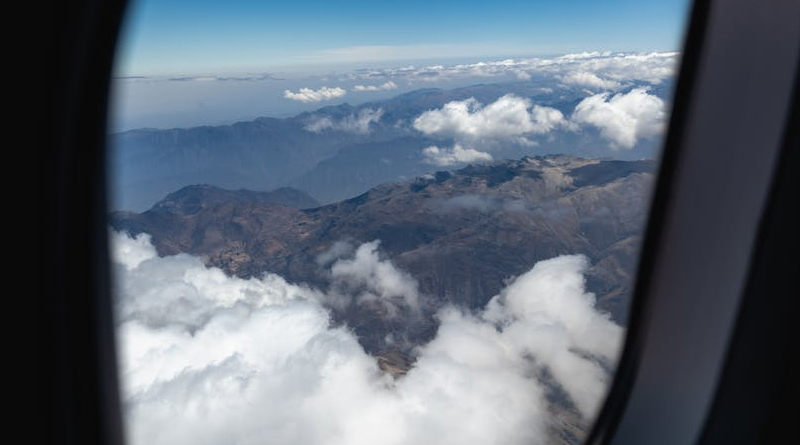TRAVELLING TO AN AMBER COUNTRY: SPAIN
It’s the end of May 2021, and I am on a flight back to the UK from Spain. I’ve been speaking at a conference in Pamplona. The two-day event was designed specifically to help tourism businesses get back on their feet and to show support for an industry that has been hot very hard by the pandemic.
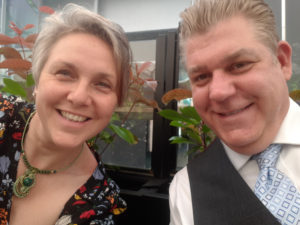
I’ve been lucky enough to speak at FoodTrex Spain twice before and it’s always a friendly event, with plenty of fun activities, great food, and friendly people. This year was no different in those respects – but in every other way, it was very different.
But let’s start at the beginning. Travel to an amber country in Europe after Brexit was a lot more complicated, time consuming and costly than I originally expected.
Until just five days before the conference I still wasn’t sure I could attend. Spain’s borders were closed to non-EU countries and regardless of Covid, that meant I couldn’t enter the country. Finally on Friday afternoon (with my only opportunity to fly, being Wednesday) Spain announced that, from Monday, the borders would open. It felt very much ‘right up to the wire’ and the stressful ‘will I / won’t I’ of the last few weeks was finally over. Now I just had to make it happen.
Fortunately, I opted to pay slightly more for the flight and fly direct to Madrid and then on to Bilbao (usually you can get a direct flight from the UK, to Bilbao, but not anymore) rather than take the cheaper option of a flight to Frankfurt, then on to Bilboa. My reasoning was that I just didn’t know how other countries might react and what rules might change, but I did know that Spain was going to let me in.
I am glad I did opt for the more expensive, straight-to-Spain option as the following day (Saturday) Germany announced it was closing its borders to the UK. I also chose to book my flight direct with Flightcentre (which I use a lot for flights) as I wanted someone on the end of the phone at the time of booking and if there were any problems during my trip. To me, that was worth the additional £20 that Flightcentre charged over the cost of booking direct with Iberia (British Airways).
So, the flight was booked. Phew.
What else do I need to do?
Although I found the government advice quite clear; take a PCR test before you leave, a PCR test while in Spain, and then two PCR tests once you are back and quarantine for 10 days, the confusion came in the practicalities and the details.
1: Take a test 72 hours before departure. But sometimes they said three days not 72 hours. There is a big difference when it comes to deciding when to get your test. The reality is 72 hours, so ignore the ‘three day’ description. Also, there is no mention of what happens if your flight is delayed.
So, I tried to get the test as close as I could to departure to allow for a delay at the airport. But the results take 48 hours to come back, so in fact there is only a 24-hour window in which to have the test. And as the tests aren’t done overnight, it narrowed me to a four-hour window on Sunday afternoon.
2: Once you’ve worked out your window, then you need to find a place to have the test, this needs to booked in advance and all the slots in the cheaper test centres were fully booked by the time I was ready to book on Friday afternoon. Eventually I found a place locally (Express Test, which has branches in a number of places) and paid £99 to have my test late Sunday afternoon. Once booked the entire process was very easy. I was in and out of the test centre in just a few minutes and my test results (negative, fortunately) arrived when they said they would.
3: I also needed to book a day two and day eight test to take during my quarantine. You have to book this before you leave the UK as you’ll need the booking reference to get back in again!
This time I opted for a ‘test at home’ through Boots. Around £180 and delivered to my door. I take the test and pop the swab in the post and get the results emailed to me a couple of days later. You can opt to have a day five test if you want to leave quarantine earlier, but as I am very lucky and live in a very beautiful rural location, I don’t need to leave quarantine early. However, if you need to, then it will cost you around another £90. I booked and paid for this test online and the package arrived at my house while I was in Spain.
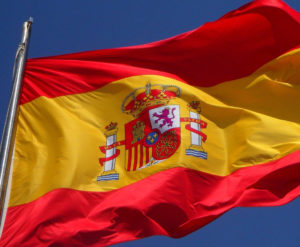 4: Next, I needed to arrange a PCR test in Spain in order to get back into the UK. Again, this needed to be no more than 72 hours before my departure from Spain. Fortunately, the conference organisers arranged this for me. However, as it turns out it’s not difficult. There are lots of clinics that will provide a PCR test with results in 24 hours at a cost of around 90Euros. You will need to book in advance. Your hotel should be able to tell you where the nearest one is, and many are attached to hospitals and medical centres.
4: Next, I needed to arrange a PCR test in Spain in order to get back into the UK. Again, this needed to be no more than 72 hours before my departure from Spain. Fortunately, the conference organisers arranged this for me. However, as it turns out it’s not difficult. There are lots of clinics that will provide a PCR test with results in 24 hours at a cost of around 90Euros. You will need to book in advance. Your hotel should be able to tell you where the nearest one is, and many are attached to hospitals and medical centres.
5: I am glad I had help, but, as it turns out, it wouldn’t have been too much of a challenge to do it myself. The process at the clinic was quick and easy and my results were indeed ready within 24 hours via a link where I could download my certificate stating that I was negative.
6: Finally, there is the Spanish health form to fill in. It’s a bit like the UK ‘passenger locator form’ and needs to be done before you get to the airport. This can be done online and there is no charge, but you need to download the QR code which is scanned when you check in. No code, no check in.
7: The final piece of paperwork I needed for this trip was the passenger locator form to get back into the UK, however you can only do this within 48 hours of your departure for the UK, and you need your seat number etc. on the flight, so you’ll have to have checked in online before you complete it.
So, that’s the paperwork now required to travel to Spain as an amber country from the UK. Total cost of all the tests was just under £400 but could have been done a little cheaper if I had been able to book the pre travel PCR test in advance. Also, Spain has now said it doesn’t require a pre-PCR test to enter, so if that remains the case, you can miss out that step.
I arrived at Heathrow for 8am for a 10.35am flight – and the extra time was needed. Although everything went smoothly, it was slower, so don’t take any risks. Give yourself plenty of time. I probably could have got there at 8.30am and been ok, but that extra half hour meant there was no stress and no rushing. The airport was eerily quiet both in terms of noise and the number of people. It all felt very subdued. There was none of that excited buzz of adventures ahead or friends to see; just an strange dull quietness.
Most people were respectful and wore their masks, I saw one young couple and a single guy not wearing them. I wondered if they were exempt (how would anyone know?) but once on the flight they had them on, so clearly they were just being stupid (and disrespectful).
The flight to Madrid was about half full and I was lucky to have a window seat with no one next to me.
Madrid however was busy – and noisy. The internal transfer took an hour and a half. First there is passport control which takes longer now we are no longer part of the EU, then there is the health check which is when you’ll need your Spanish entry form and the QR code, then you have to go back into the airport and through the security again. It was all smooth, but it took time. So don’t book a flight with anything less than a two-hour transfer window.
The flight from Madrid to Bilbao was busy and we were all rammed in together. Neither of the flights offered any food or drink – even to buy.
On arrival in Bilbao it turns out that non-EU luggage, like mine, was sent to a different belt. So, look out for this as it wasn’t clear on the board. But if there is a separate section for non-EU then assume that’s where your bag will end up. Again, this takes a little longer than it does for EU arrivals.
So, all in all, there were no major problems to speak of, and the system, once you have all your paperwork done correctly works smoothly. But there is a lot to do, so it takes time. Time before you leave, and time once you are transit. The days of dashing through the airport are gone (at least for now) and you simply need to accept this will all happen at a rather sedate pace.
Am I glad I went despite the hassle and the cost (and I’ll admit quite a bit of stress right up to the point of check in)? Yes. Travelling is a wonderful privilege and I very much hope I can continue to do it for many years to come. Yes, it will be different. Yes, it may be more expensive and more challenging, but seeing different places, peoples and cultures is always inspiring, energising and simply wonderful. It was entirely worth it and I am proud to have spoken at FoodTrex Spain 2021 and do my little bit to help the tourism industry.
Going to Pamplona? Wander round town and stop for coffee in a café, and try out the churros, and take a guided tour of Pamplona (something I’d recommend for almost any city you visit). Here are a few more top tips:

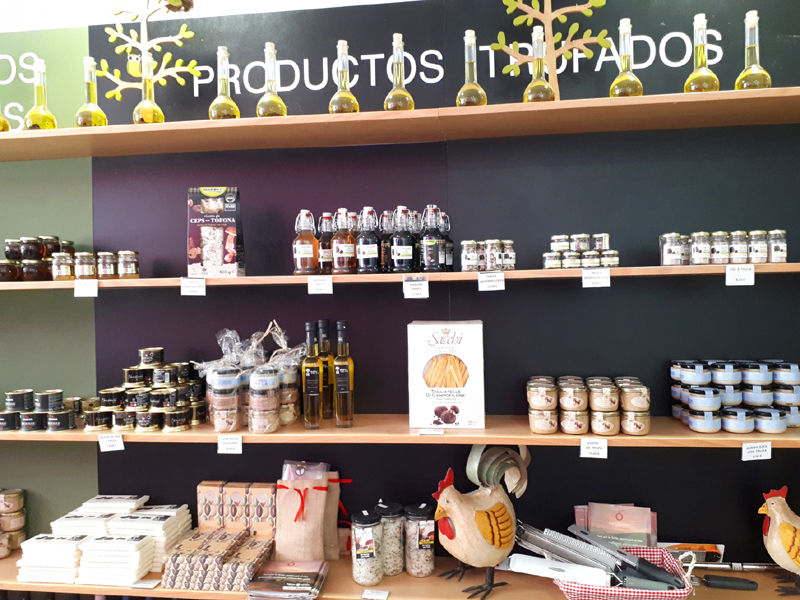
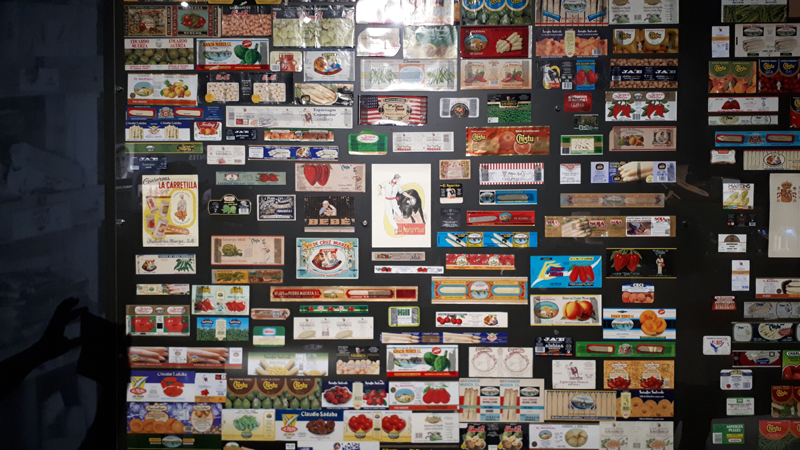
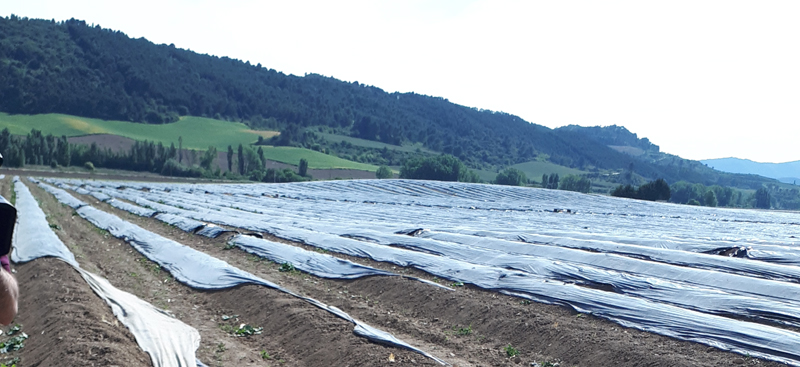

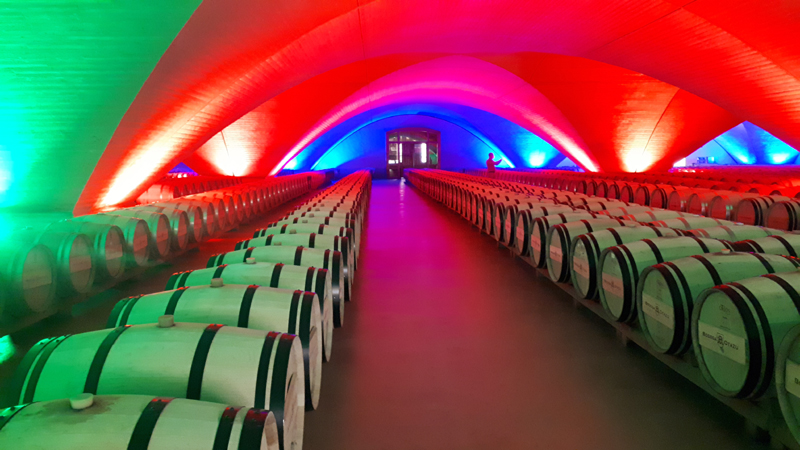
As the restrictions of the pandemic ease, I look forward to many more adventures in Spain and beyond.
FACT BOX
Tourism Navarre: turismo.navarra.es/eng/home/default.htm
The Truffle Museum: museodelatrufa.com
El Churrero de Lerin: facebook.com/elchurrerodelerin/
Navarre Gastronomy: turismo.navarra.es/eng/Productos/gastronomia-vinos.htm
COVID-19 and Spain: gov.uk/foreign-travel-advice/spain/coronavirus
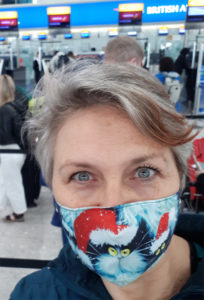 ABOUT THE AUTHOR
ABOUT THE AUTHOR
Chantal Cooke is an award-winning journalist and broadcaster and co-founder of PASSION for the PLANET. Chantal is passionate about vegan food and tourism being used as a force for good. You can follow her adventures on Facebook and Twitter @chantalcooke and on Instagram @Chantaldcooke

